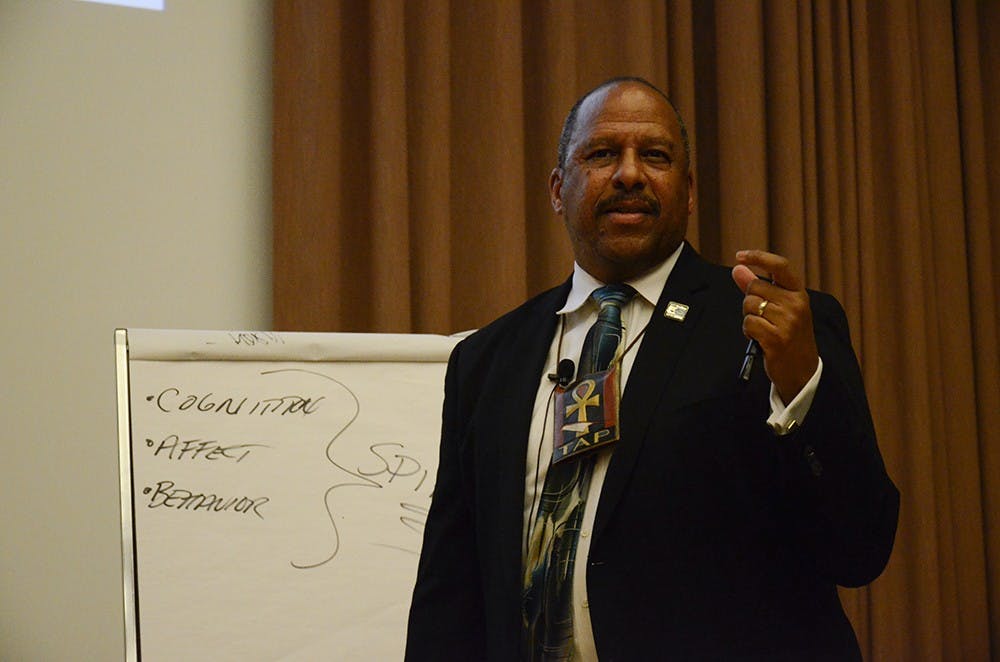He illustrated a scene where he is in need of mental health support and comes to “you,” the therapist.
The question is,” he asked, “how do you help somebody like me, a male African American, if you have no idea what is mentally healthy for ?Africans?”
Parham, the vice chancellor for Counseling and Health Services and an adjunct faculty member at the University of California, Irvine, has studied African psychology and multicultural counseling for over 30 years.
He said there’s a difference between what an individual does and who they truly are.
“We live in a world where we are a sum total of the degrees we acquire, the houses we live in and the cars we drive,” Parham said. “My role as a healer is to be a healing presence in the lives of those around me.”
He said mental health practitioners determine mental disorders based on how much a specific behavior deviates from the norm of ?the majority.
The problem with this is that everyone is generalized as the same type of person.
“The problem is not in the theory, the problem is in the application,” he said. “The application says that we are the norm and we are generalizable to everyone, but why then aren’t we included in the subject samples?”
Parham focused on the concept of spirituality in conjunction with mental health throughout his lecture, adding that it gives every one of us our “inner-being-ness.”
He said many individuals who conduct mental health exams only focus on the three elements of personality: cognition, behavior and effect — the way we think, the way we behave and the way we feel.
“You can’t have mental health and only look at the dimensions of personality,” Parham said. “We miss a big part when we don’t look at spirituality.”
Spirituality, he said, is measured by a person’s ability to transform and transcend situational circumstances in ways that are beneficial.
Parham argued that one cannot be authentically human and not be in touch with his or her spirituality.






